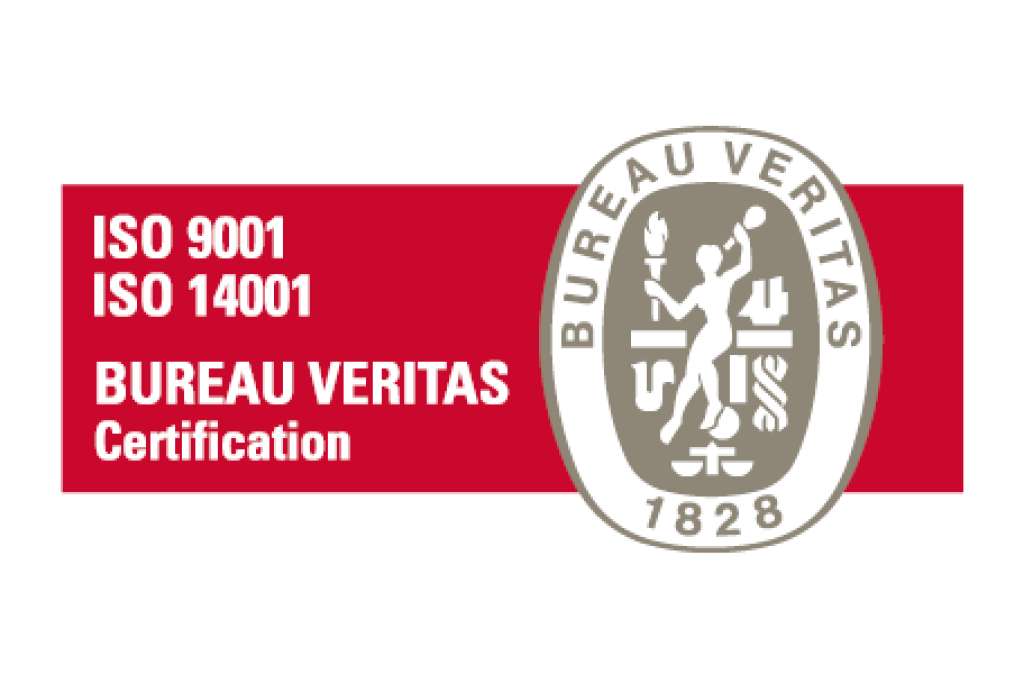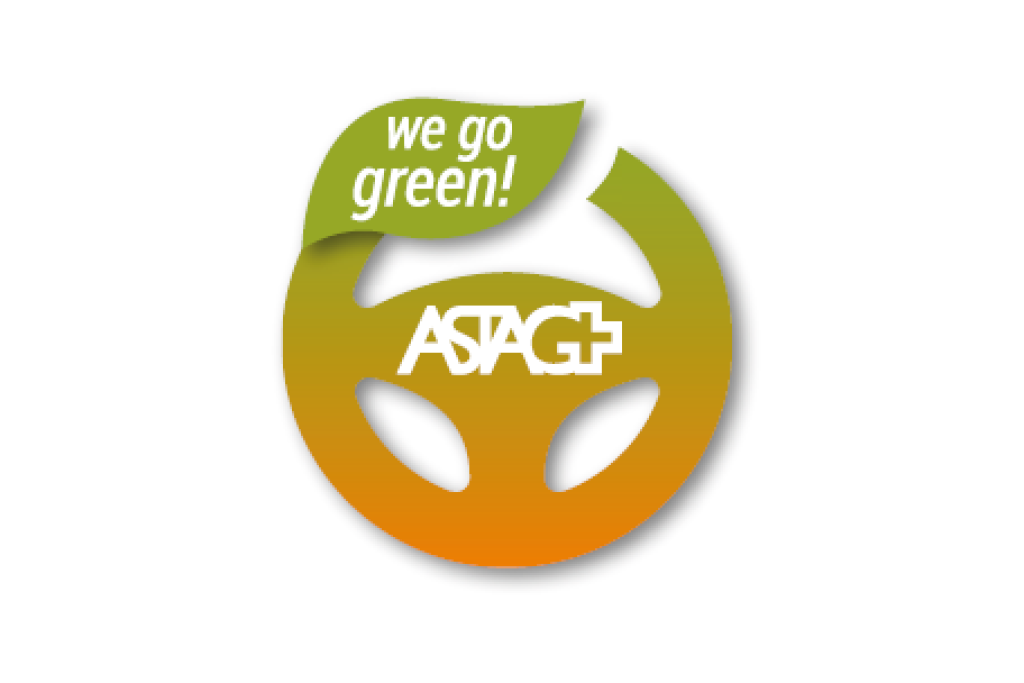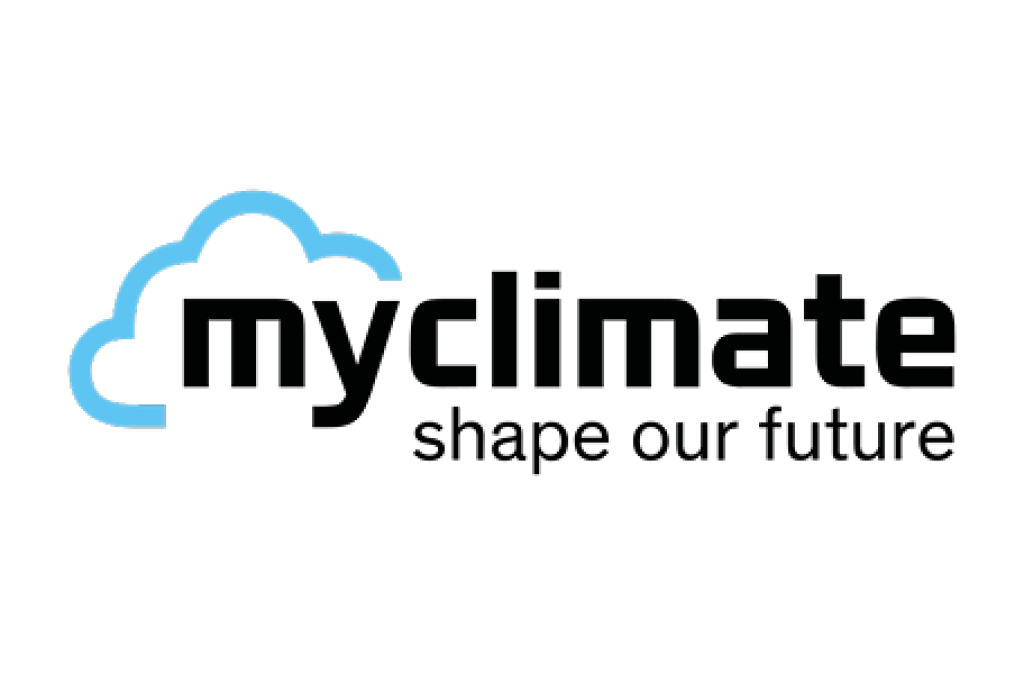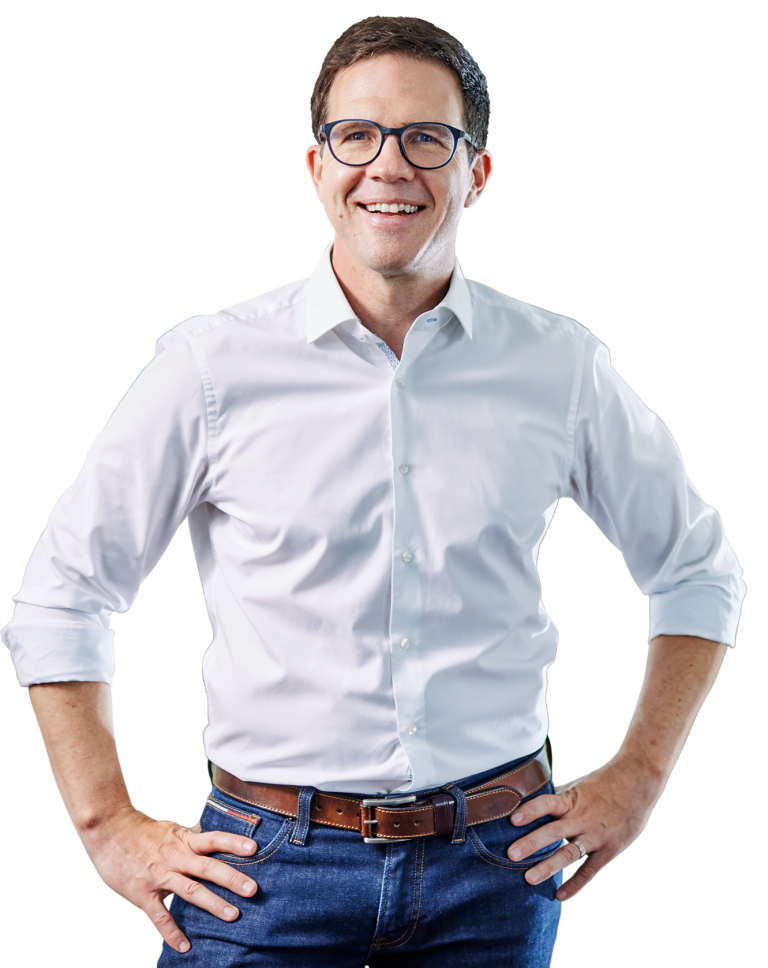
Quo Vadis Sustainability
“As a company, we make use of many raw materials. That’s why we pay attention to a wide range of issues in order to fulfill our responsibility to the environment, society and, above all, future generations, while still remaining resilient and profitable in the long term.”
-
HIGH STANDARDS IN THE VEHICLE FLEET & ECOLOGICAL DRIVING
-
According to the FOEN (Federal Office for the Environment), heavy goods traffic contributes approx. 6 percent to Switzerland’s total CO2 emissions. Private cars account for 30 percent, rounded up. In recent decades, there has been massive investment across the industry to improve the nitrogen (now reduced to zero) and CO2 footprints. This also explains why, despite a 28 percent increase in vehicle kilometers and a 64 percent increase in the volume of goods over the past 20 years, CO2 emissions have risen at a disproportionately low rate of 30 percent.
Over the past decades, EMIL EGGER has also continuously upgraded all vehicles to the latest EURO exhaust emission standards within the scope of their useful life. In this way, we continuously reduce pollutant emissions to the most up-to-date minimum.
Environmentally friendly road travel is not only possible with alternative drive technologies. Our drivers drive low speed and max. 89 km/h (average speed 85 km/h). Spoilers, front aprons and aerodynamic vehicle cabs reduce air resistance and thus also help to save fuel.
In some cases, we also use double-deck trailers and achieve efficiency gains of up to 50 percent depending on the product we are transporting.
In addition, we only procure premium tires for our vehicles. This not only has a positive effect on reducing fuel consumption, but the carcass can also be renewed twice, thus minimizing resource consumption.
-
OPTIMAL TOUR PLANNING
-
We are constantly working on optimizing our tour schedules. This means we combine trips whenever possible, avoid empty runs and try to keep vehicle utilization high. This requires complex solutions between people and technology and challenges our dispatchers to plan and organize skillfully on a daily basis.
With live data, our fleet management system enables the optimal deployment of right-sized vehicles and the prevention of empty runs. With the transshipment centers in St. Gallen, Härkingen, Avenches and San Antonino (TI), we can further compress journeys and prevent unnecessary emissions.
-
ALTERNATIVE DRIVE TECHNOLOGIES
-
Electricity is not available in unlimited quantities and not always from environmentally friendly sources. At present, it is not only politicians who are becoming increasingly aware that a too rapid switch to electromobility would lead to an acute electricity crisis. We are currently testing various models of e-trucks on short routes. The initial cost, range, cost and source of electricity, and manufacture and disposal of batteries leave some skepticism as to whether electrification of the vehicle fleet is the most sustainable solution for the industry.
The first hydrogen-powered trucks will also soon be put to the test.
-
WATER TREATMENT IN THE TRUCK WASH SYSTEM
-
At all our sites, we have a water treatment plant in our truck wash facilities. With these systems, we reduce fresh water consumption by around 50 percent. Approx. 200 liters of water are required per wash cycle per delivery truck, approx. 450 liters per truck and approx. 600 liters for a semitrailer/trailer combination.
The preparation takes place in several steps:
- In the sludge trap, the wastewater is roughly cleaned by sedimentation.
- Afterwards, dissolved substances such as detergents and cleaning agents as well as fats are degraded in the biological basin. Microorganisms on aufwuchskörpern break down the pollutants without chemical help.
- In a so-called stacking basin, the cleaned water is temporarily stored for the next washing process.
-
TREND TOWARDS PAPERLESS OFFICE WORK
-
We are continuously working on the topic of digitization and paper reduction. For example, over 70% of invoices have been delivered electronically for some time. In the administration itself, too, we are focusing on digitizing processes and thus continuously saving mountains of paper. Our goal is to be largely paperless within a few years.
-
LED ILLUMINANT
-
At all our locations, we use LED lamps exclusively. LEDs are efficient, durable and low-maintenance. This reduces the replacement rate and also the proportion of disposal, and at the same time reduces the production requirements of the illuminants. In addition, whenever possible, we install motion detectors against unnecessary power consumption.
-
VARIOUS LEVIES PER TRUCK
-
In addition to the road traffic tax and the performance-based heavy goods vehicle tax, there is also an ongoing diesel tax of approx. 80 centimes per litre of consumption per truck. On average, an annual levy of approximately CHF 100,000 can be expected per truck, which is fed into the tax pots. At EMIL EGGER AG, this amounts to around CHF 20 million in levies per year.
-
MOST MODERN TRANSSHIPMENT CENTERS
-
As an active contribution to counteracting the rising volume of traffic, we have built state-of-the-art handling centers at our St.Gallen, Härkingen and Avenches sites. This enables us to condense journeys and avoid unnecessary trips, which has a positive effect on the emissions balance. Also supporting our customers’ trip reduction is our professional picking service.
-
DISPOSAL & RECYCLING
-
At EMIL EGGER AG, all employees are required to avoid and separate waste. We ensure that waste and operating materials are disposed of properly in all areas. Saving paper in the forwarding department and in the offices is a major concern for us and paper consumption is continuously reduced.
-
PHOTOVOLTAIC SYSTEMS & EARTH PROBES
-
We have been equipping new buildings with solar systems for years. Currently, depending on the weather, we produce about 210’000 kWh per month, which is about 2’520’000 kWh per year.
Since the generation of electricity from solar energy fluctuates greatly, we feed the kWh produced directly into the power grid and otherwise purchase electricity normally from the connected grid so that we can ensure a stable supply.
In our many new buildings currently under construction, we also choose sustainable heating systems such as geothermal probes.
THINKING IN GENERATIONS, INSTEAD OF QUARTERS
Thinking in generations instead of quarters – not an empty slogan for the family-owned company EMIL EGGER. Short-term returns are not our goal – we attach importance to sustainability, in the sense of organic growth and investment in employees, infrastructure and, of course, a high-performance fleet to ensure the company’s continued existence for many decades to come.
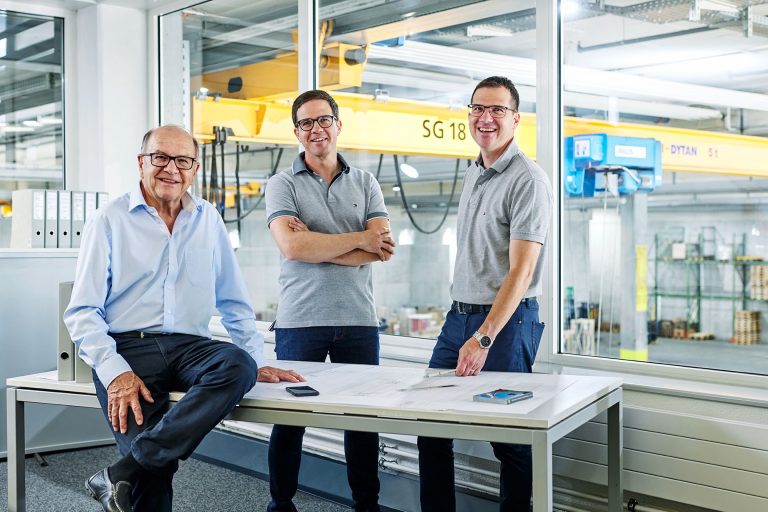
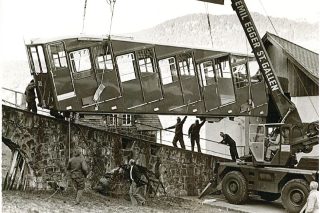
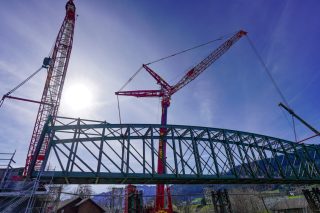
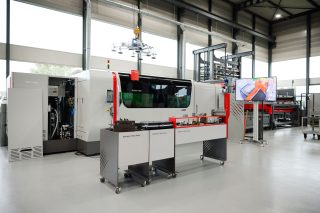
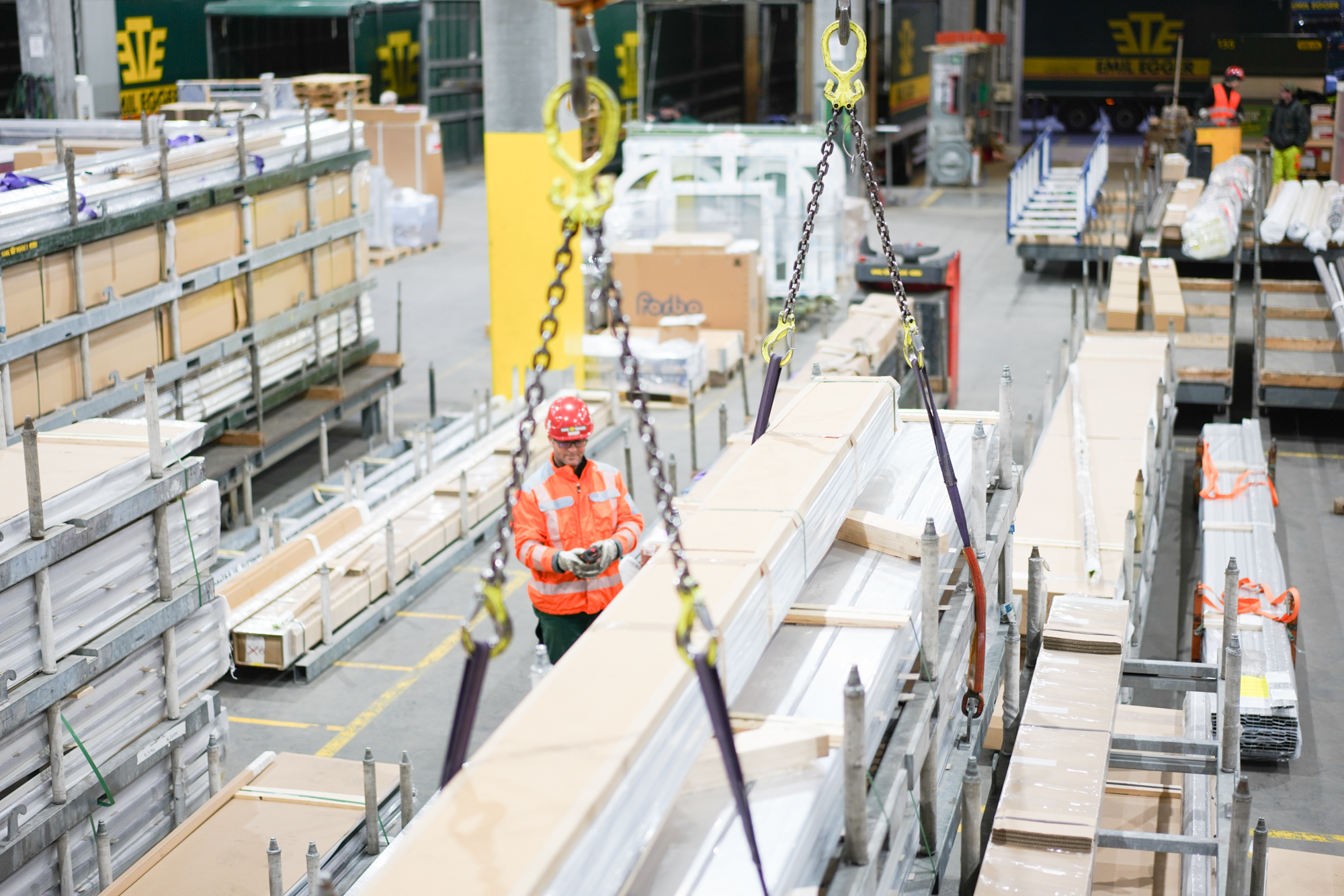
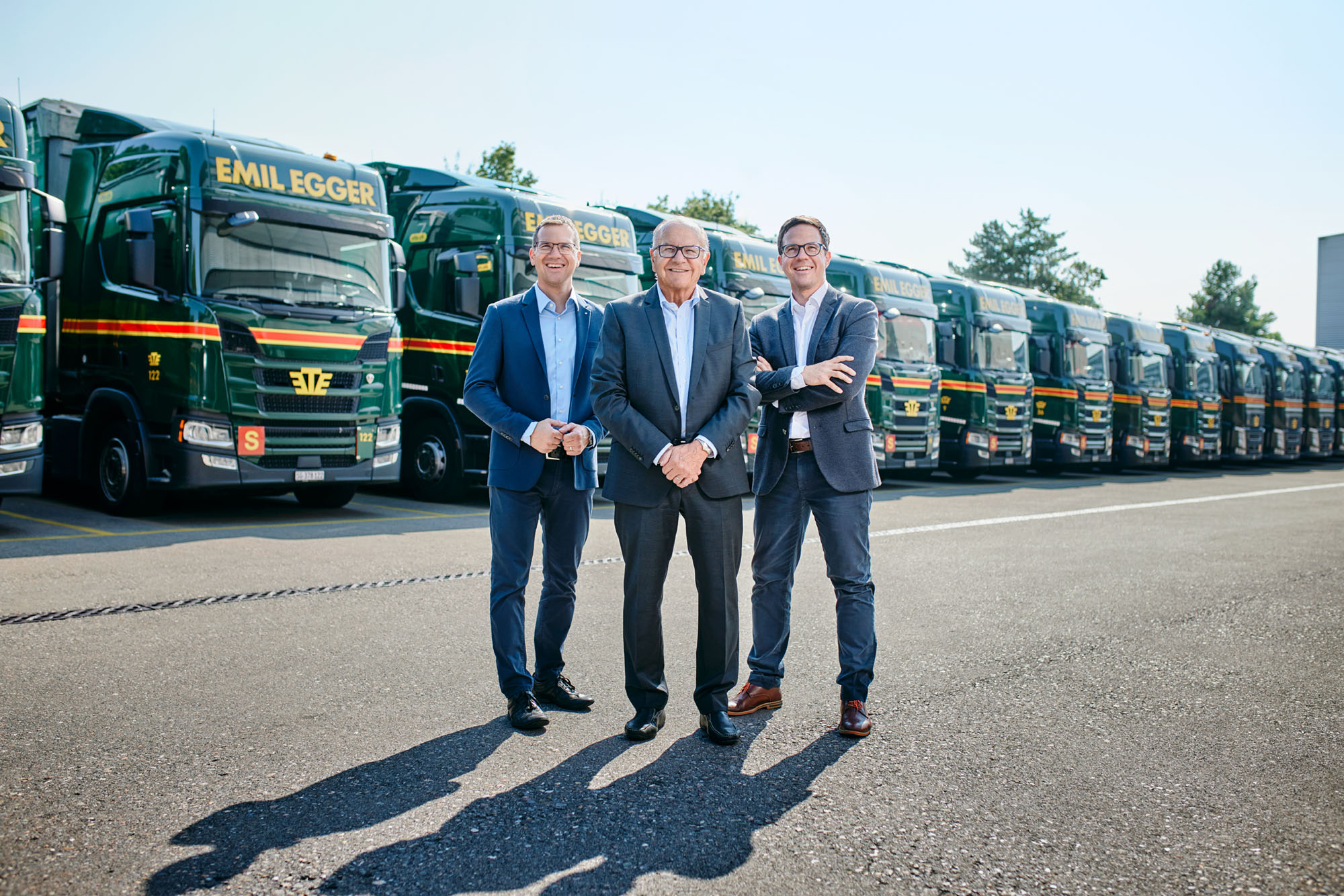

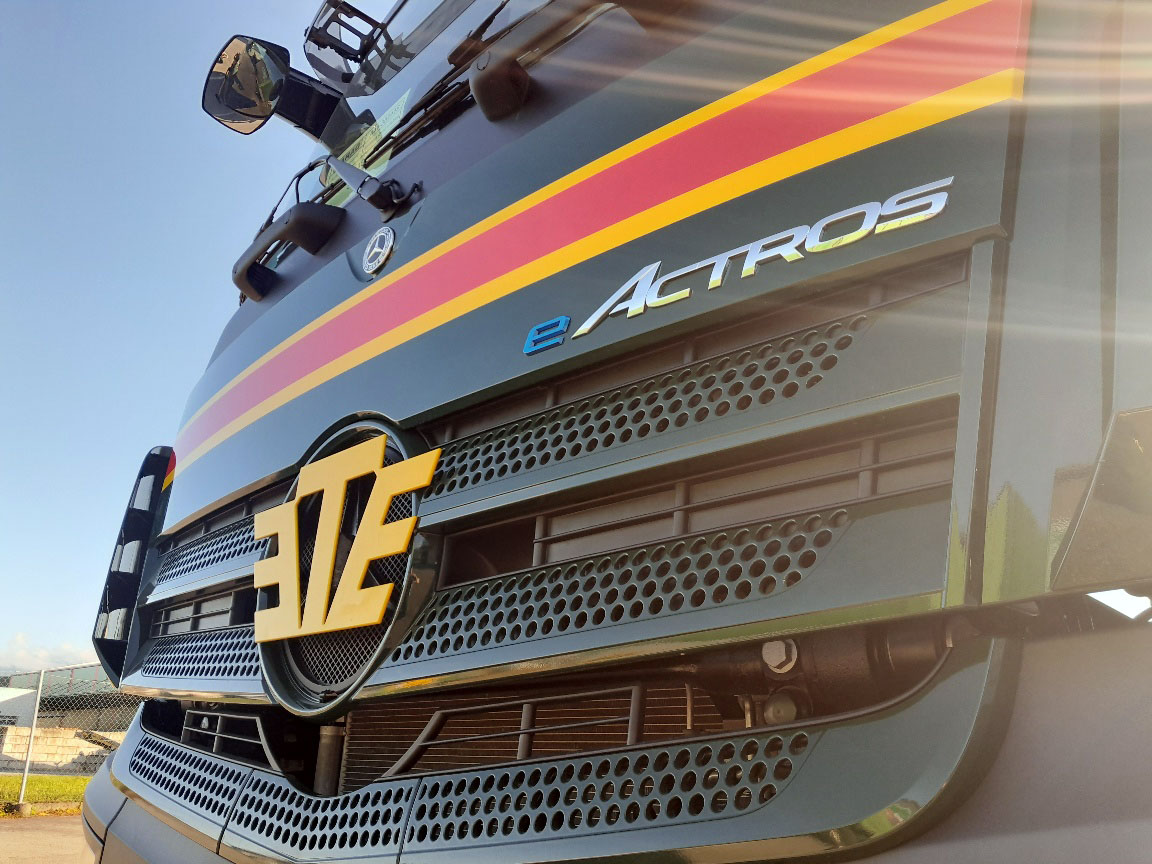
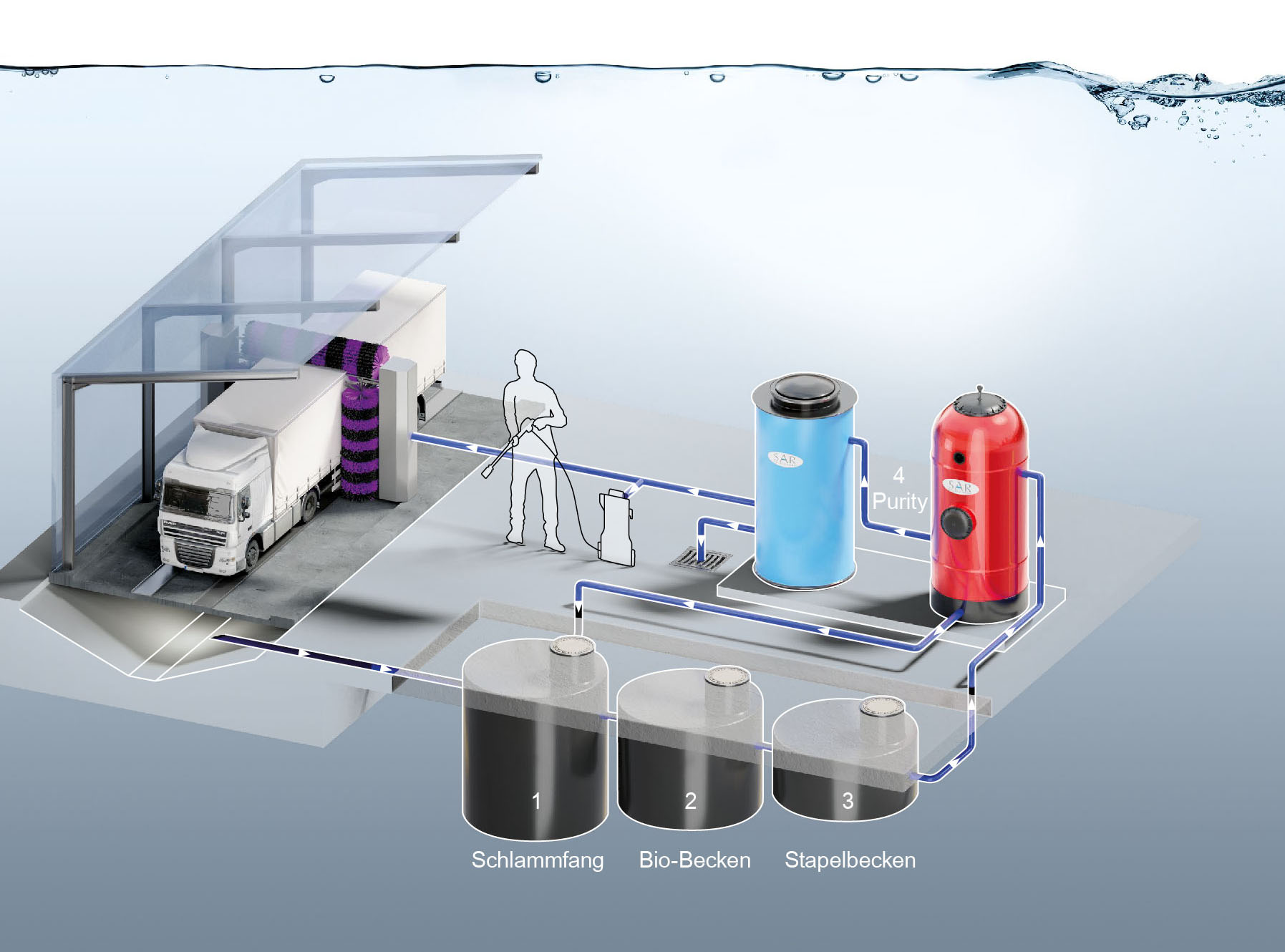
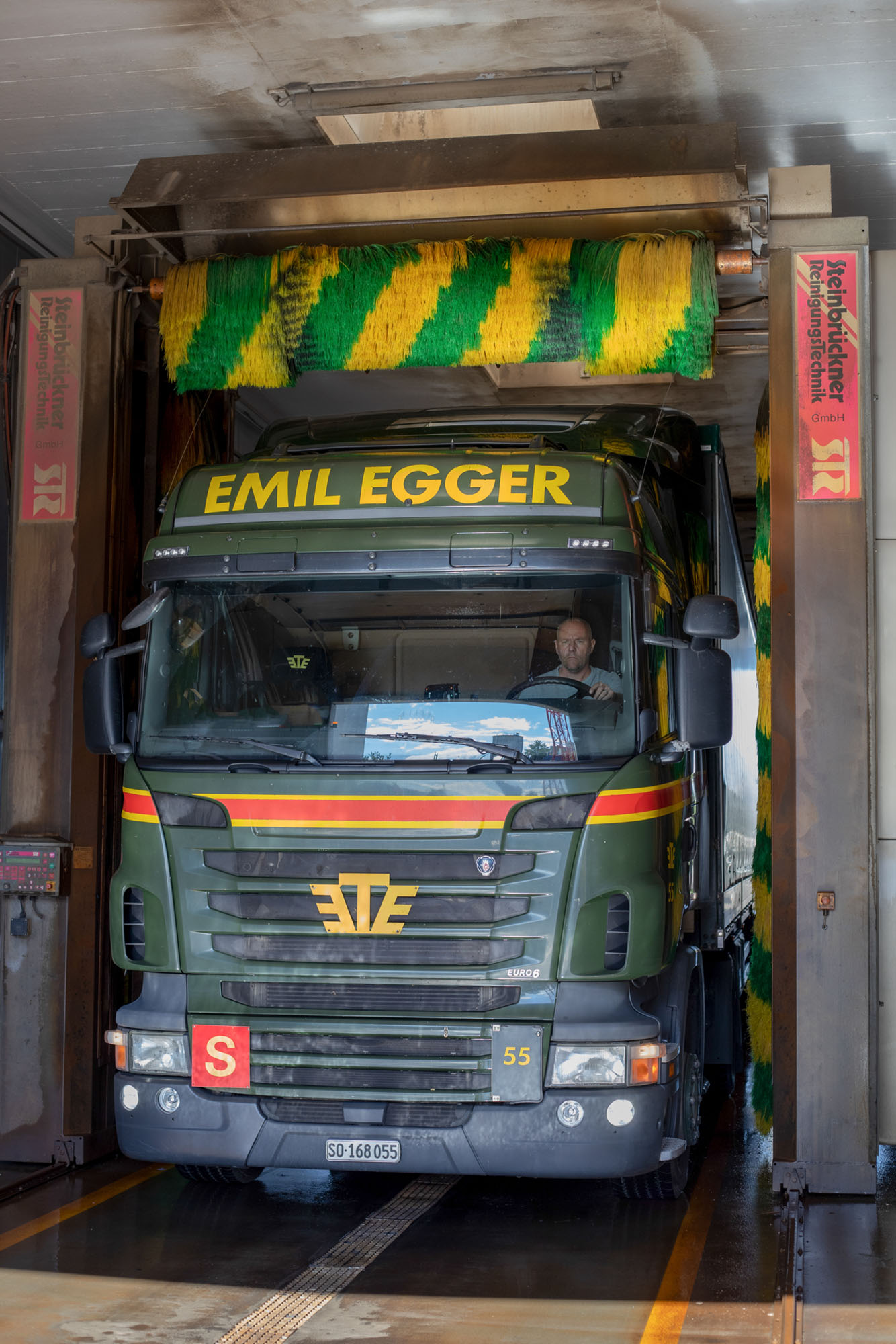
 We are continuously working on the topic of digitization and paper reduction. For example, over 70% of invoices have been delivered electronically for some time. In the administration itself, too, we are focusing on digitizing processes and thus continuously saving mountains of paper. Our goal is to be largely paperless within a few years.
We are continuously working on the topic of digitization and paper reduction. For example, over 70% of invoices have been delivered electronically for some time. In the administration itself, too, we are focusing on digitizing processes and thus continuously saving mountains of paper. Our goal is to be largely paperless within a few years.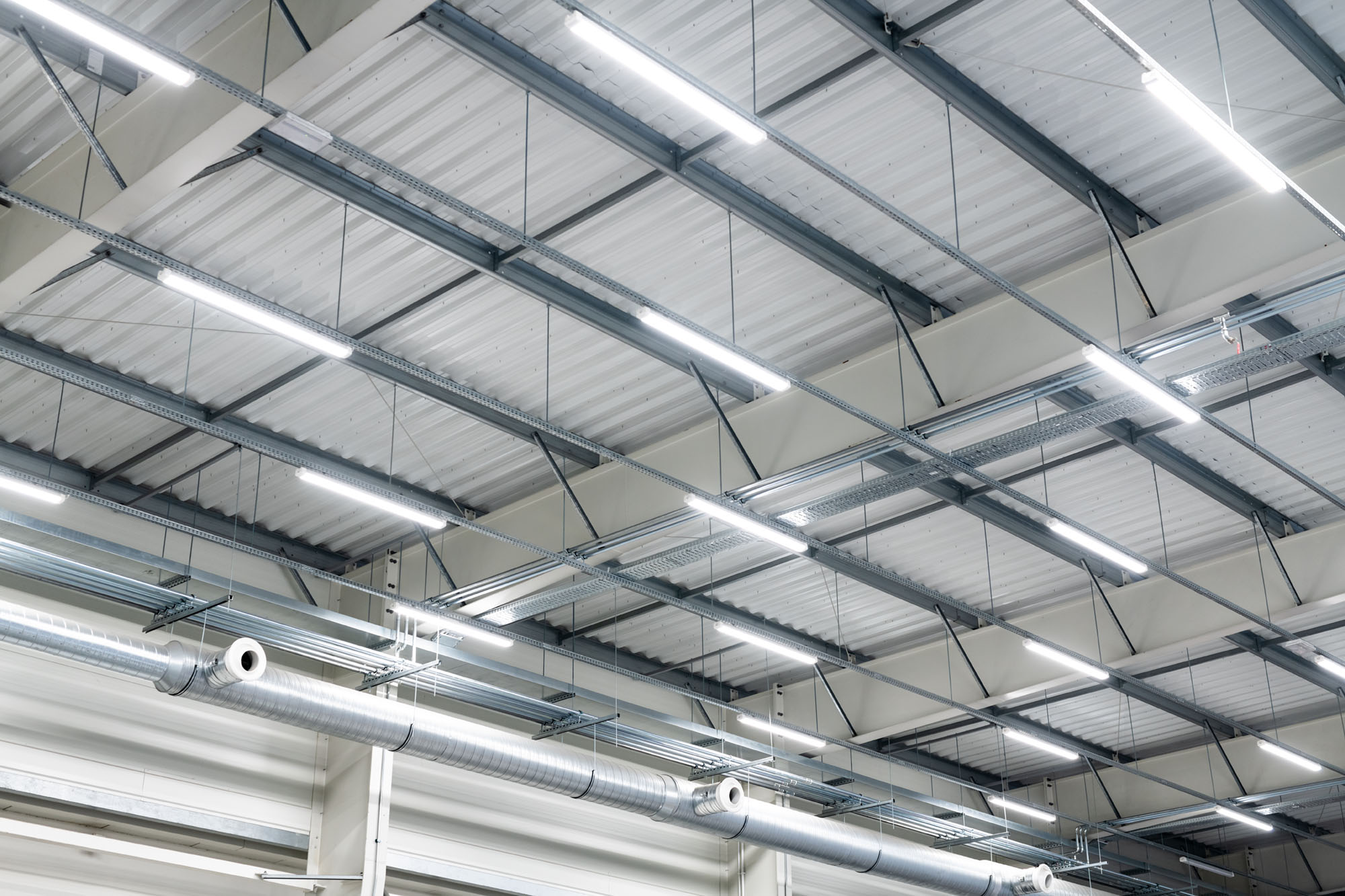 At all our locations, we use LED lamps exclusively. LEDs are efficient, durable and low-maintenance. This reduces the replacement rate and also the proportion of disposal, and at the same time reduces the production requirements of the illuminants. In addition, whenever possible, we install motion detectors against unnecessary power consumption.
At all our locations, we use LED lamps exclusively. LEDs are efficient, durable and low-maintenance. This reduces the replacement rate and also the proportion of disposal, and at the same time reduces the production requirements of the illuminants. In addition, whenever possible, we install motion detectors against unnecessary power consumption.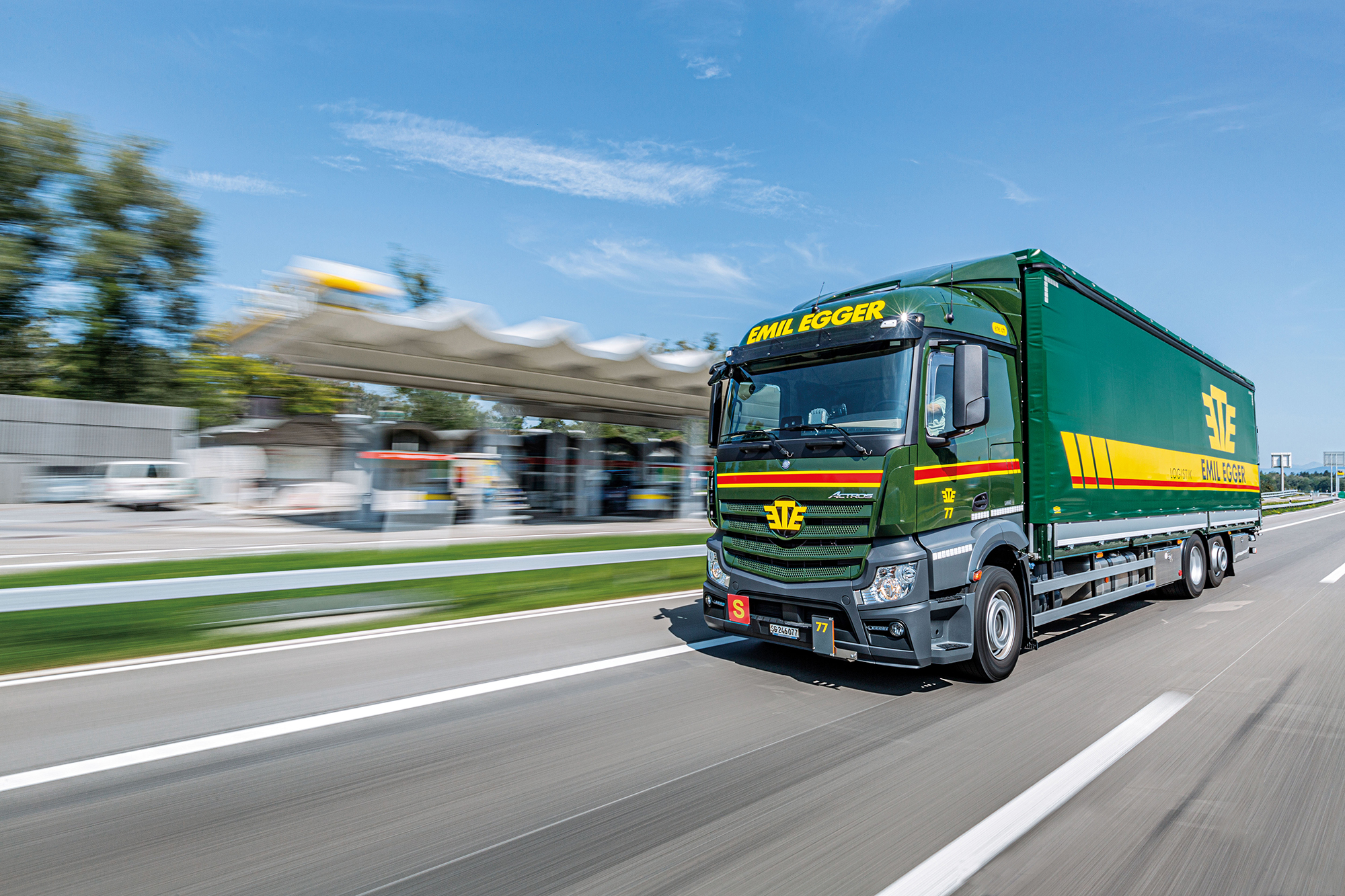 In addition to the road traffic tax and the performance-based heavy goods vehicle tax, there is also an ongoing diesel tax of approx. 80 centimes per litre of consumption per truck. On average, an annual levy of approximately CHF 100,000 can be expected per truck, which is fed into the tax pots. At EMIL EGGER AG, this amounts to around CHF 20 million in levies per year.
In addition to the road traffic tax and the performance-based heavy goods vehicle tax, there is also an ongoing diesel tax of approx. 80 centimes per litre of consumption per truck. On average, an annual levy of approximately CHF 100,000 can be expected per truck, which is fed into the tax pots. At EMIL EGGER AG, this amounts to around CHF 20 million in levies per year.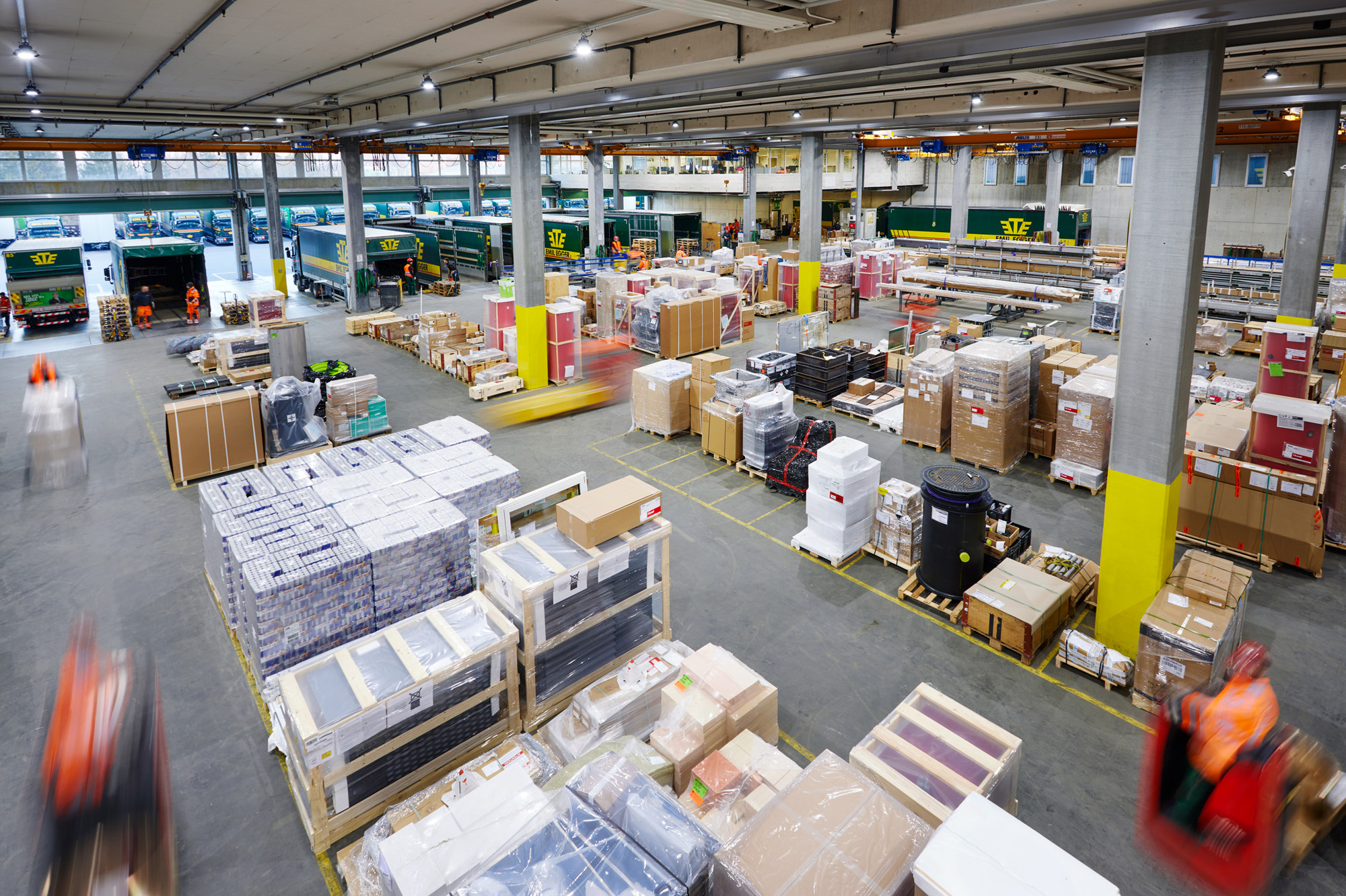 As an active contribution to counteracting the rising volume of traffic, we have built state-of-the-art handling centers at our St.Gallen, Härkingen and Avenches sites. This enables us to condense journeys and avoid unnecessary trips, which has a positive effect on the emissions balance. Also supporting our customers’ trip reduction is our professional picking service.
As an active contribution to counteracting the rising volume of traffic, we have built state-of-the-art handling centers at our St.Gallen, Härkingen and Avenches sites. This enables us to condense journeys and avoid unnecessary trips, which has a positive effect on the emissions balance. Also supporting our customers’ trip reduction is our professional picking service.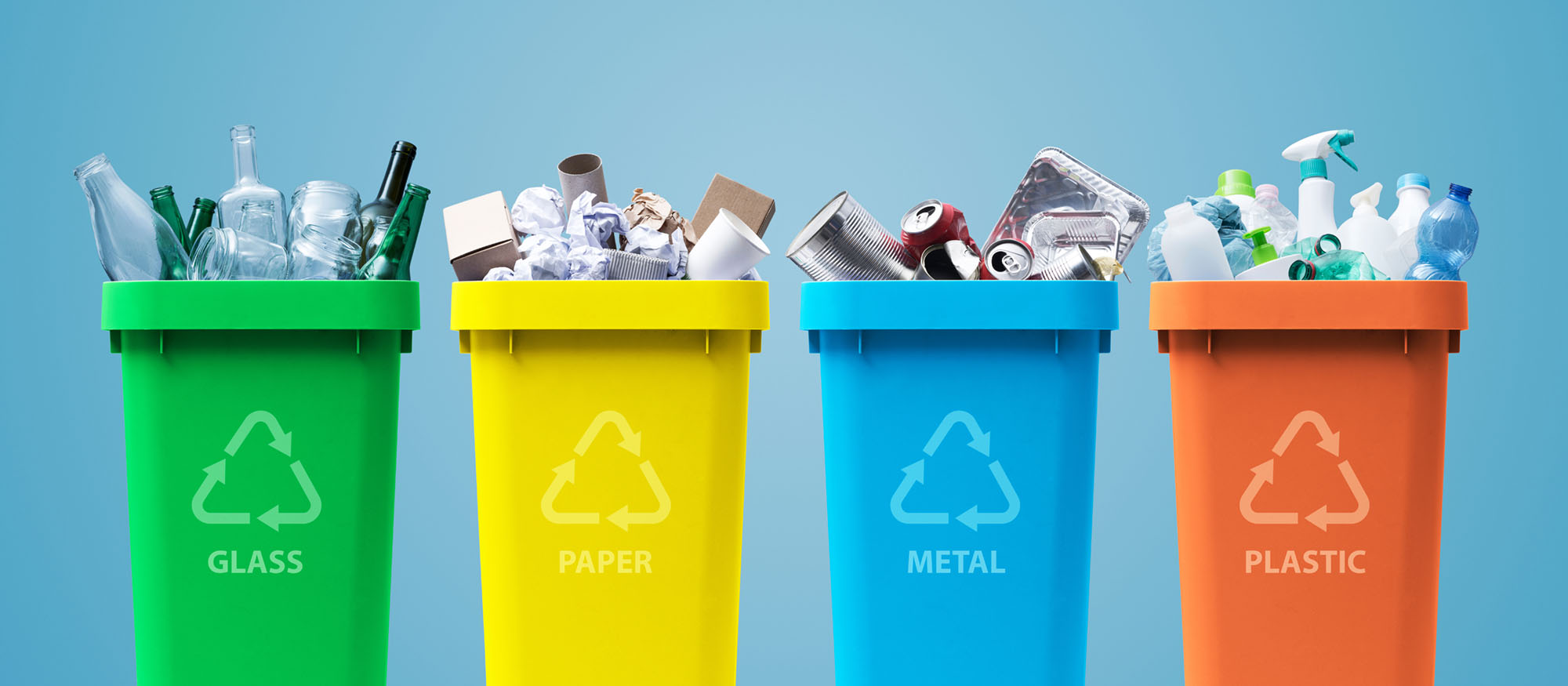
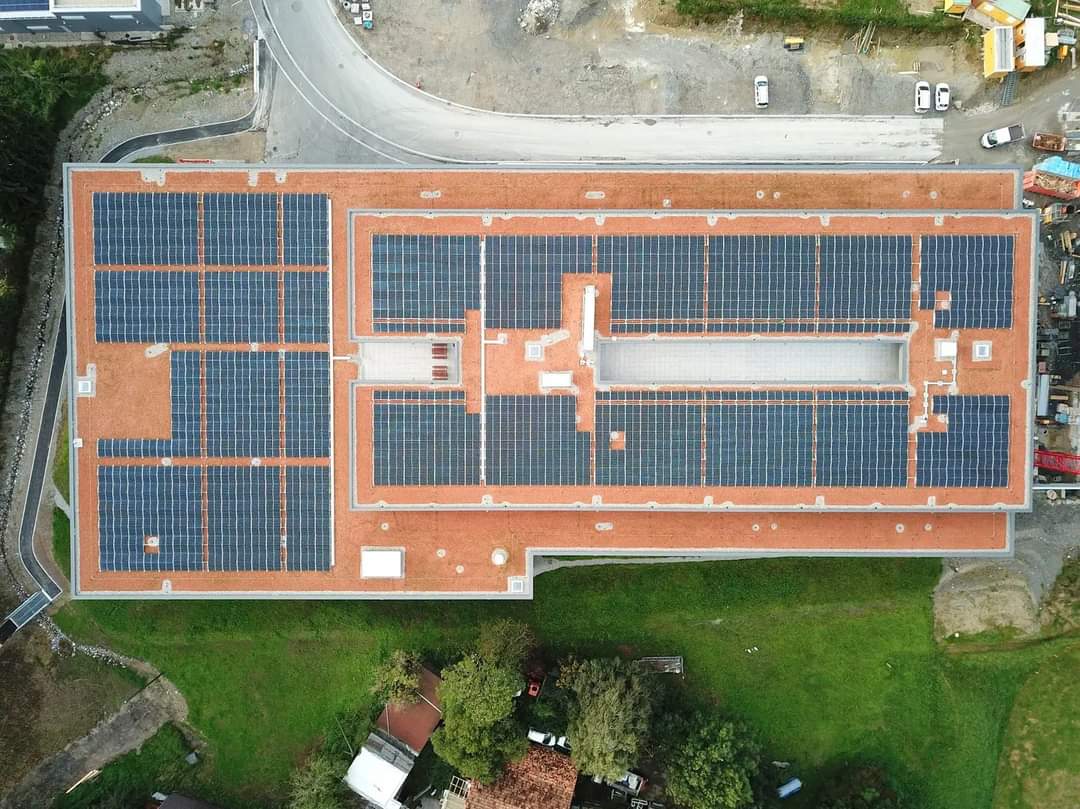 We have been equipping new buildings with solar systems for years. Currently, depending on the weather, we produce about 210’000 kWh per month, which is about 2’520’000 kWh per year.
We have been equipping new buildings with solar systems for years. Currently, depending on the weather, we produce about 210’000 kWh per month, which is about 2’520’000 kWh per year.